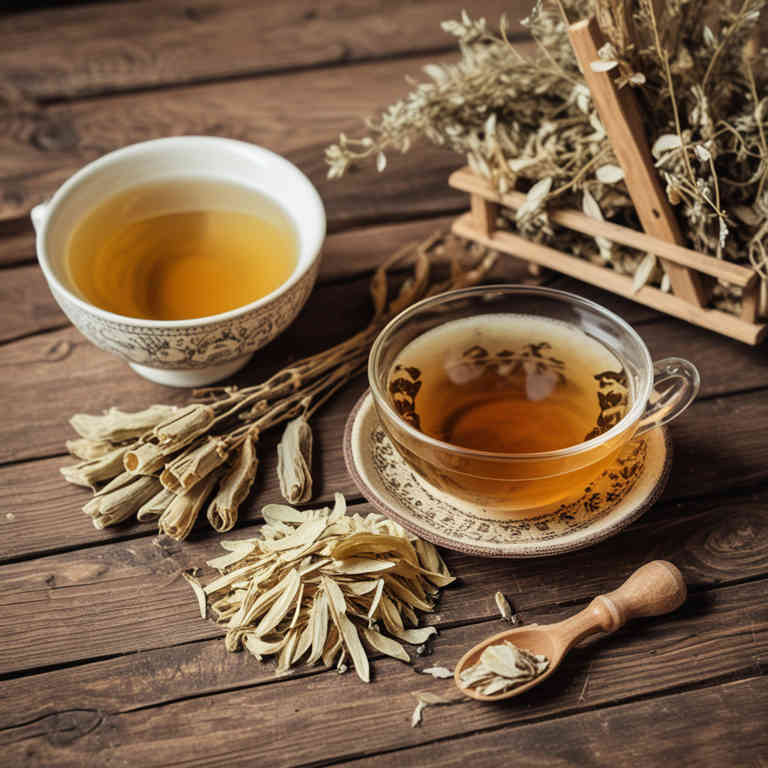Astragalus membranaceus tea for medicinal use

Astragalus membranaceus tea is a traditional herbal preparation made from the dried root of the Astragalus membranaceus plant, also known as Huang Qi in Chinese medicine.
It is widely used in herbalism for its purported immune-boosting properties and its ability to support energy and vitality. This tea is often consumed to enhance respiratory health, reduce fatigue, and promote overall wellness. In traditional Chinese medicine, it is believed to tonify the qi (vital energy) and strengthen the immune system.
It is typically prepared by steeping the dried root in hot water and drinking it as a daily tonic.
Uses
Astragalus membranaceus tea has been used to support immune function and promote vitality for centuries, particularly in traditional Chinese medicine.
Historically, it was valued for its ability to strengthen the body's defenses and was often used to treat respiratory infections and fatigue. In modern times, it is still popular as a herbal supplement, with research suggesting it may enhance immune response and have anti-inflammatory properties. It is commonly consumed as a tea to improve overall health and well-being.
Its use continues to grow globally, blending ancient wisdom with contemporary wellness practices.
Benefits
Astragalus membranaceus tea has health benefits such as boosting the immune system, enhancing energy levels, and supporting overall vitality.
This traditional Chinese herb is known for its adaptogenic properties, helping the body resist stress and maintain balance. It may also promote healthy skin and improve respiratory function by reducing inflammation. Regular consumption of this tea is believed to enhance longevity and support the body's natural healing processes.
However, it is important to consult a healthcare professional before using it, especially for individuals with existing medical conditions or those taking medications.
Constituents
Astragalus membranaceus tea active constituents include polysaccharides, saponins, flavonoids, alkaloids, and amino acids.
These compounds are believed to support immune function and enhance vitality. Polysaccharides are particularly noted for their immunomodulatory effects. Saponins may contribute to anti-inflammatory and antioxidant properties.
Flavonoids and alkaloids are thought to provide additional health benefits, including stress reduction and improved cellular health.
Preparation
To make Astragalus membranaceus tea, start by gathering 1 to 2 teaspoons of dried Astragalus root.
Boil 2 cups of water in a pot or kettle, then add the dried root to the boiling water. Let the mixture steep for 10 to 15 minutes, allowing the beneficial compounds to infuse into the water. Strain the tea into a cup to remove the root particles.
You can drink the tea warm, optionally adding a small amount of honey or lemon for flavor.
Side Effects
Astragalus membranaceus tea may lead to gastrointestinal discomfort, such as nausea, bloating, or diarrhea, especially when consumed in high doses.
It can also cause allergic reactions in individuals sensitive to plants in the legume family. Some people may experience insomnia or restlessness due to its stimulating properties. Long-term use might interfere with certain medications, particularly immunosuppressants or blood thinners.
It is important to consult a healthcare provider before using this tea, especially for those with pre-existing health conditions.